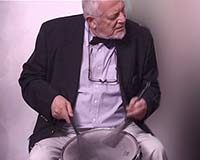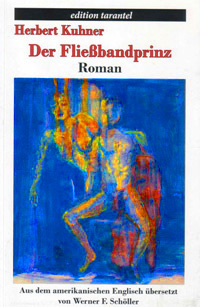Casablanca and Serendipity
I favor starting out with a concept and carrying through to the denouement. However, sometimes chance is a better method than any method.
Ingrid Bergman didn’t jell with Humphrey Bogart and ditto for him. Ingrid also she wasn’t enthralled by the making of Casablanca. The script was ad lib, and there was no ending prior to the end of filming the film. The ending, in which the lovers sacrifice their love for the cause, was tacked on at the last minute. (Later, after Ingrid “eloped” with Roberto Rossellini, there would practically be no script at all for the five films he directed for her. So in a way, Casablanca broke her in.) My view on those films dissents from that of many film buffs. I think serendipity didn’t work out very well for Roberto.
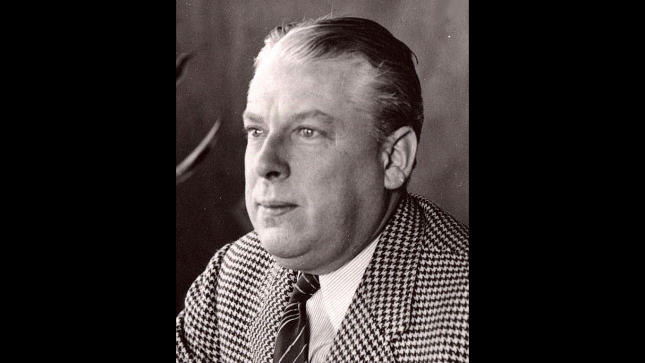
Herman Hupfeld
Who is Herman Hupfeld? He is the composer and lyricist for Down The Old Back Road, A Hut in Hoboken and the stellar Goopy Geer. He also wrote that Fats Waller favorite Let’s Put Out The Lights (And Go To Sleep). And the classic As Time Goes By also came from his pen. Here’s the story of how Time became associated with Casablanca, as related by Frank Miller, the author of the book Casablanca:
”As Time Goes By had been written in the ’20s and had enjoyed moderate success in a recording by Rudy Vallee. But it was the favorite song Murray Burnett, one of the co-authors of the play Everybody Goes to Rick’s. He used the song as the love them for Rick and the leading lady (in the play she’s named Lois). Nobody at Warner’s questioned the use of that song, since the studio owned the rights anyway. When the film had been shot and Max Steiner was ready to score it, he tried to get them to change the song, claiming that it was so musically uninteresting that he couldn’t work it into the score. He also may have wanted to write a new song for the film and possibly make a hit (as he had done with It Can’t Be Wrong, the song he wrote for Now, Voyager). Hal Wallis was ready to make the change, but it meant re-shooting some lines for Ingrid Bergman. And she had already cut her hair short for her role in For Whom the Bell Tolls. Unable to match up the shots, they had to stick with As Time Goes By, which became a bigger hit than ever as a result of its use in this film.”
Casablanca, in my view; is a pot boiler with nary a cliché missing. I’ve said that Michael Curtiz could get good juice out of bad oranges, and this juice is terrific. But Michael did get a little help from serendipity on this one. What if Ronald Reagan and Hedy Lamarr, who were first choice for the roles, had been the stars? And what if Ingrid had not had her hair cut?
At any rate, serendipity is responsible for the inclusion of As Time Goes By in Casablanca and it
“dictated” much of Casablanca, and in this case the right decisions were made.
The Best Screenplay
The Screen Writer’s Guild picked the screenplay of Casablanca as the best screenplay ever in 2006, 64 years after the film’s release. Wow!
Here’s what I wrote about Casablanca some years ago: “It is the melodrama of all melodramas and the pot boiler of all pot boilers. The camera is everything but static. It flows from one scene to the next, never stopping for breath, with rhythm that seems completely natural.
“I’ve seen it several times since first seeing it at the Princeton Playhouse, the year of its release. Nary a cliché is missing, but what marvelous direction! Michael Curtiz was a director who could get good juice out of the worst oranges. The script may be a bad orange, or even a lemon, but the film is so masterfully made that it hits the truth.”
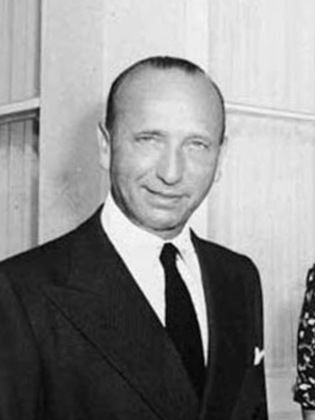
Michael Curtiz
Michael Curtiz got good juice out of that orange with some help from Humphrey Bogart and Ingrid Bergman. If Ronald Reagan and Hedy Lamarr, who were first choice for the roles, had played them, Curtiz could have squeezed and squeezed, but his efforts would have resulted in nothing but sour juice.
I suspect that the jurors, who picked the screenplay as number one, had judged the cinematic result, rather than the typescript.
On the other hand, due to the efforts of Michael, Bogey, Ingrid, Claude Rains, Conrad Veidt, Peter Lorre and Sidney Greenstreet, etc., maybe Casablanca is the best screenplay ever put to
celluloid.
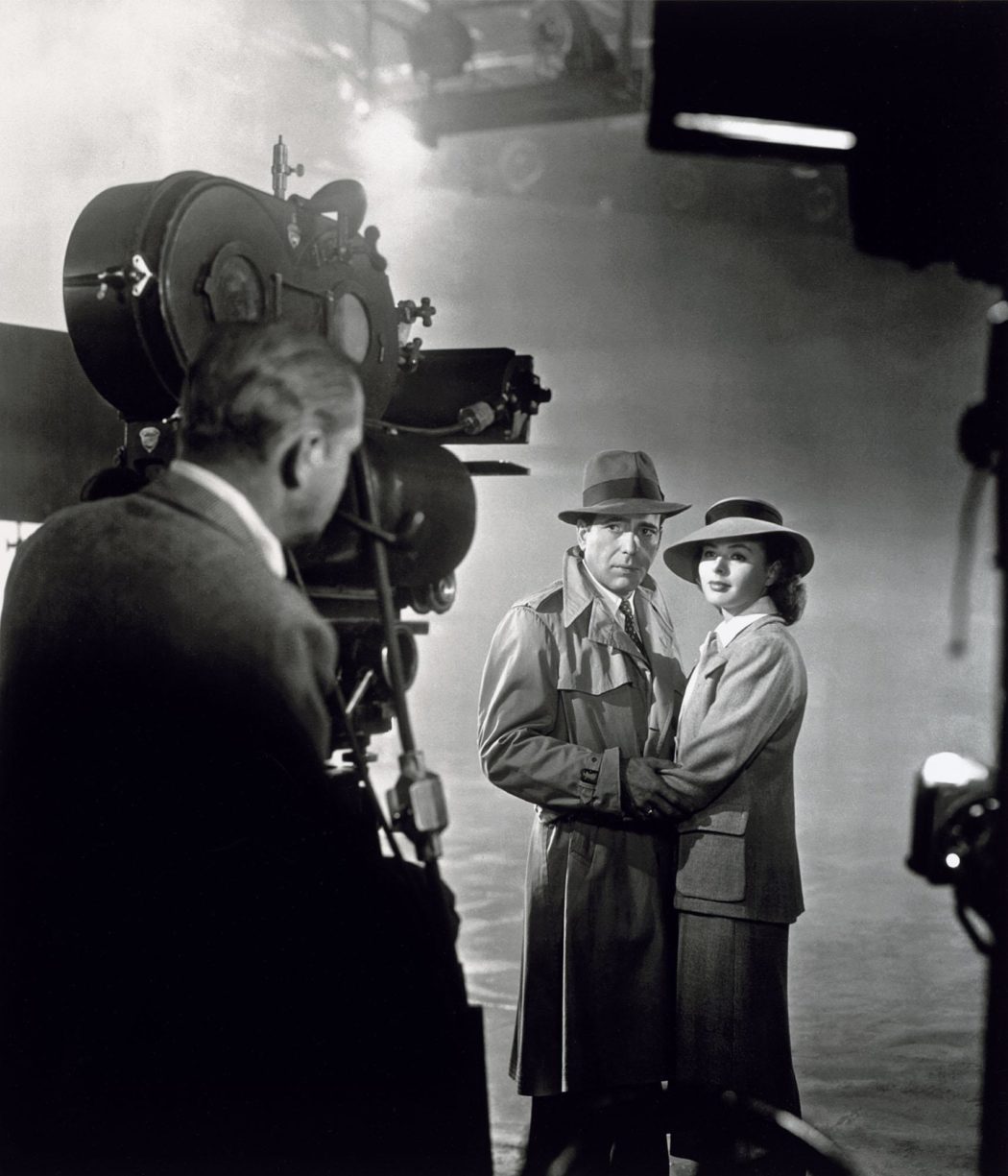
Making of Casablanca
Relishing Roles
Who was most instrumental in disseminating German and culture all over the world? That’s right, Adolf Hitler.
Hitler inadvertently helped disseminate German and Austrian culture internationally by driving artists out of those locations for “racial” and political reasons.
Not to be forgotten, there were many whose careers were permanently truncated by death and others whose careers were nipped in the bud. Yes, Hitler and his minions were efficient.
The ones that got away often ended up in the New World. Some went under, but others embarked on successful careers – especially in the arts and music
The roster of German and Austrian directors and actors who landed in Hollywood in the Thirties and Forties is endless.
After the United States entered the war, actors were needed to portray Third Reich villains. In the propaganda pot boilers of the time, who was better suited to play Gestapo and SS-officers than the emigrés in Tinsel Town? They had the accents without trying, and they had the mannerisms down to a T.
Many an emigré found himself donning the uniform of those who had driven him out of Europe.
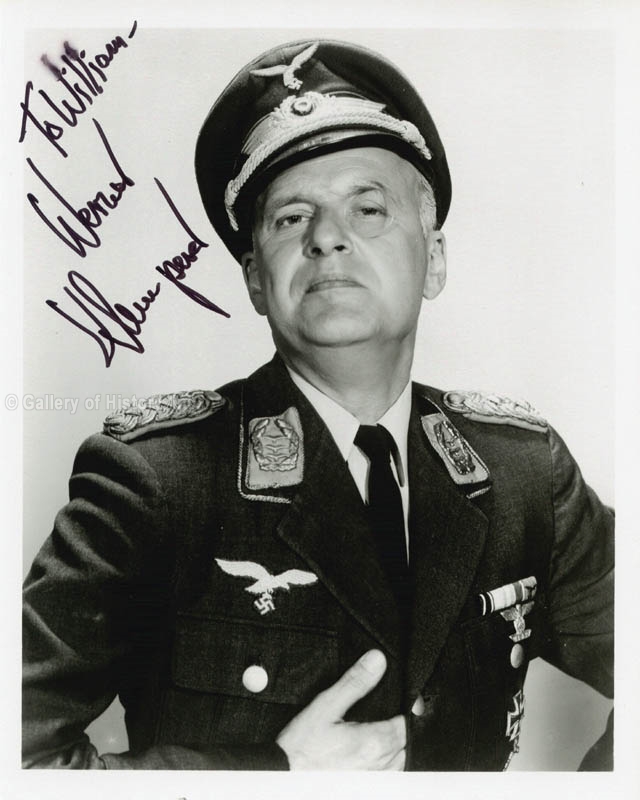
Werner Klemperer
to be continued . . .
– Herbert Kuhner









 Users Today : 135
Users Today : 135 Users Yesterday : 165
Users Yesterday : 165 This Month : 2117
This Month : 2117 This Year : 19050
This Year : 19050 Total Users : 177145
Total Users : 177145 Views Today : 343
Views Today : 343 Total views : 1867578
Total views : 1867578 Who's Online : 7
Who's Online : 7
